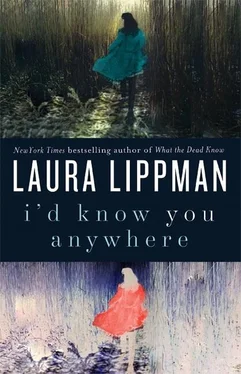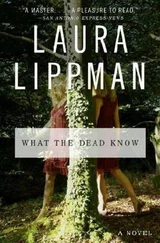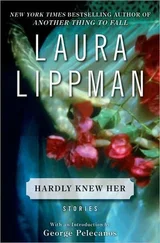“Why’d you turn the engine on?” Walter asked. His face was scratched, and he was breathing hard. “You know better than that. You’re wasting gas.”
“I was cold.”
“Then why are you still shivering?”
She hadn’t even noticed. But she was shivering, and her teeth were chattering so loudly it was amazing she could hear the music at all.
Part VII
EVERYBODY WANTS TO RULE THE WORLD
Released 1985
Reached no. 11 on Billboard Hot lid on June 8,. 1985
Spent 24 weeks on Billboard Hot 100
“DO YOU WANT TO STOP?”Vonnie asked. “There are a bunch of places at the next exit, and we’re making good time.”
“I’m not hungry.”
“There’s a Dairy Queen.” She drew out the syllables, knowing what tempted Eliza. “And a Cracker Barrel.”
“That’s okay.”
“Who knows? Maybe we’ll find a Stuckey’s.”
Eliza began to laugh, almost in spite of herself. “The infamous peanut log, which you insisted on having—”
“We both wanted it.”
“And it was awful and Daddy copped one of those attitudes he had every now and then, said we had to eat it, because we had been adamant about wanting it, that it would be our treat every day of the vacation until it was gone—”
Vonnie put on their mother’s voice. “Oh, Manny, I’m sure the girls have learned their lesson.” She switched to a lower octave. “They must learn proportion in some things, to stop being so wasteful. Children are starving.”
“So, on the second night at the—what was it called?”
“The Martha Washington Inn. In Abingdon.” Vonnie’s memory always amazed Eliza, but maybe it was just another facet of Vonnie’s certainty about everything. She believed she was right, and no one called her on it. “They took us there because it had a good theater and they were going through one of those phases where they thought we were philistines.”
“Not you, never you.”
“Yes, me too. Daddy thought I had atrocious taste in my recreational reading, and you didn’t read at all when you were young. So they took us to Abingdon to see Of Mice and Men . Which was pretty good, but what we all remember is what happened when you and I tried to flush that Stuckey’s peanut log down the toilet in the Martha Washington Inn’s quaint antique bathroom. If only we had used the ceramic bedpan that was provided for purely decorative reasons!”
Of course. That was why Eliza had started reading Steinbeck a few years later. Because the play had moved her, all of eleven years old at the time. It was 1981, the first year of the Reagan administration, and their parents felt like exiles in their own country, out of step with the times and the mores. Their father was prone to moods like this, a situational depression generated by the culture around him. It was as if he saw his children being borne away on a stream of cheap toys and stupid sentiment. As a parent, Eliza understood better now. She often felt the same way about the things that Iso and Albie coveted, their susceptibility to trends and advertising. But she was less inclined to counter as aggressively as her father had, to insist on trips to Gettysburg and Antietam and the Franklin Institute in Philadelphia. The trip to Monticello notwithstanding, as that had been more of a cover for the need to go to Charlottesville.
If Eliza and Peter had been inclined, they could have married this trip to a visit to Williamsburg and Busch Gardens. Instead, they had claimed that Peter and Eliza were going on a getaway to Richmond, which had been written up in the New York Times as an ideal weekend retreat. They assumed the children could stay with their grandparents, but it turned out that Manny and Inez had their own plans for the weekend, a trip to the Greenbrier in West Virginia, and Eliza could not bear to disturb their genuine getaway for her fake one. Instead, she called Vonnie, who declared she would be happy to stay with her niece and nephew. But Peter countered that it might be better for the two women to hit the road together. “No knock on your sister,” he said, “but I would be distracted beyond all reason, wondering if she would remember to pick Albie up at school on time. Besides, Iso’s still grounded, and she’ll find a way to get around Vonnie. Your sister may be able to go toe-to-toe with most secretaries of state and the chairman of the Fed, but she’d be outwitted by a thirteen-year-old intent on making contact with some pimply boy in North London.”
Eliza was pretty sure that this was a knock on her sister, but she decided not to fight about it. The two hadn’t been alone for a long time, perhaps not since Eliza’s children were born. They had seen more of Vonnie in London than they had since they had moved back to the States because Vonnie’s work brought her there more often than it did to Washington. Even then, their visits tended to be dinners at London restaurants where people were constantly swanning up to Vonnie and kissing both her cheeks. Vonnie always chose the restaurants, so presumably she preferred that kind of atmosphere. She found multiple excuses not to come out to Barnet for dinner—so very far, and the Underground didn’t run that late, never mind that she could have spent the night in their spare bedroom, but she always had early meetings the next day. No, she met Eliza and Peter in the trendy restaurant of her choice, then sent them home weighed down with expensive, but not-quite-right, gifts for the children.
It was 9 A.M. and they had been on the road since seven, anticipating a fearful journey past the famous Capital Beltway knot called the Mixing Bowl. Although Eliza knew it only by its reputation, as delineated in the “on the eights” traffic reports on WTOP, she feared it. The Mixing Bowl was like the soulless killer in one of those serial horror films. It rested at times, but it never died. Eliza decided they should leave as early as possible in order to avoid rush hour. To her amazement, traffic in D.C. was quite heavy at seven, but they were going against the flow and sailed through the dreaded Mixing Bowl with such ease that she almost felt a twinge of disappointment. They would reach Richmond well before lunchtime, hours before they could check into their room. They could have left Saturday morning, but visiting hours were relatively early. Eliza, advised by Barbara LaFortuny, had decided it was better to arrive a day early, then make the short trip from Richmond, past a town amusingly known as Disputana and into Waverly, home to Sussex.
Not that Barbara had ever been allowed to visit Walter, she told Eliza. But she knew other men at Sussex I and II, and she was familiar with the procedure. Her voice had sounded wistful, actually, when she spoke of Eliza’s trip. “I’ve never met him. Can you imagine? All these years and I’ve never seen him, face-to-face. Yet I know him as well as I know anyone.”
It had been hard not to ask: “And just how well do you know anyone, Barbara?”
“Did we ever come to Richmond when we were young?” Eliza asked Vonnie now. The city that was coming into view seemed vaguely familiar.
“I don’t think so. We drove through, on one of my college trips, when I went to check out Duke.”
“I’d forgotten about your college trips, how the whole family went along.”
“That was because both Mother and Father wanted to go, and they couldn’t leave you at home alone.”
“Really? I didn’t remember that part. I thought you insisted they both go, said you needed their input.”
Vonnie laughed. “Does that sound like me? I didn’t even want to go on college trips. I knew Northwestern was the right place for me, but they said I had to apply to at least five schools and visit each one. I picked the other four knowing I wouldn’t like them as much as Northwestern—UNC, Duke, Bennington, and NYU. A big state school, an idiosyncratic almost-Ivy, a private school on a par with Northwestern, and a big-city school. It made me look open-minded. But I wanted a strong journalism program and a strong theater department, and only Northwestern had both.”
Читать дальше












